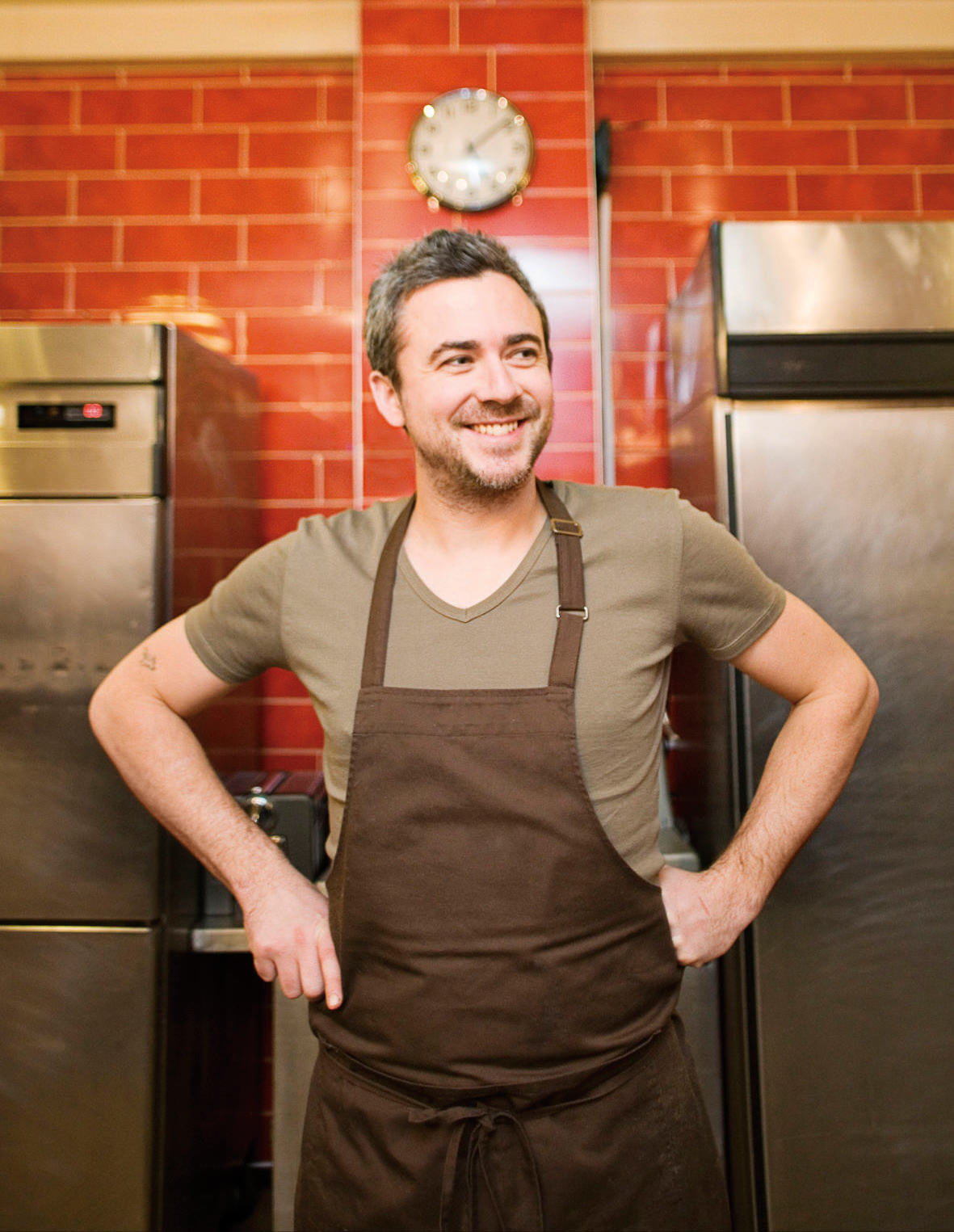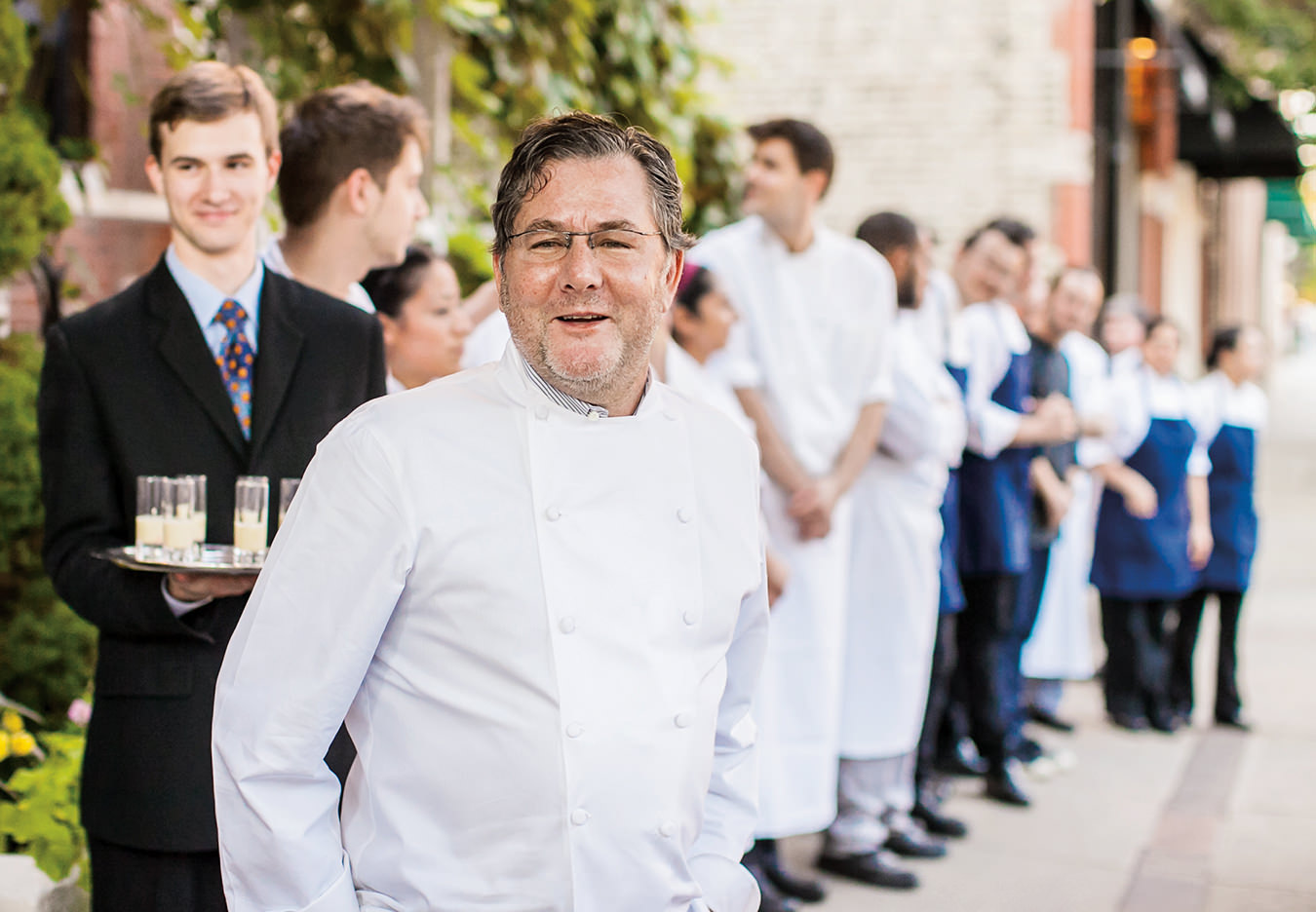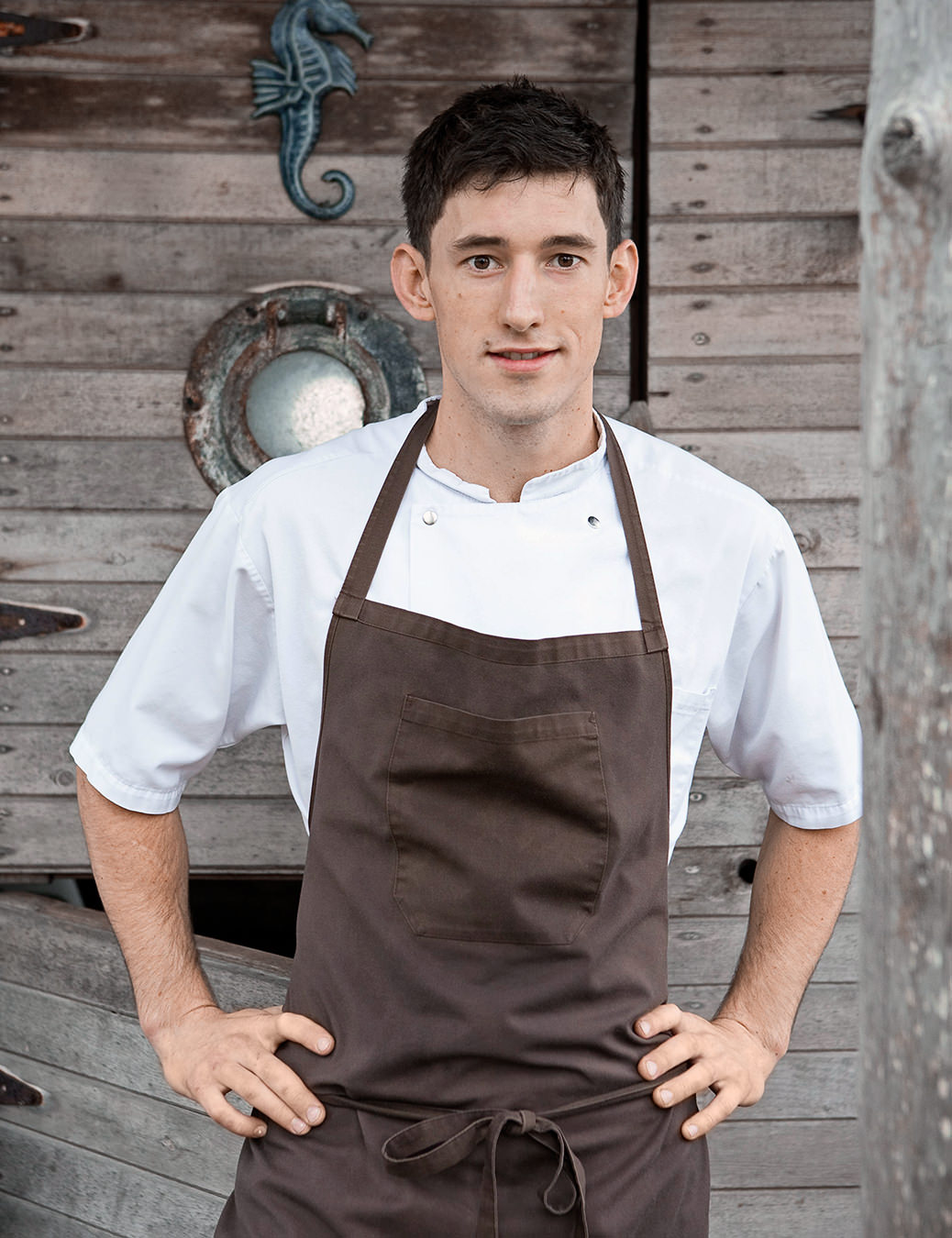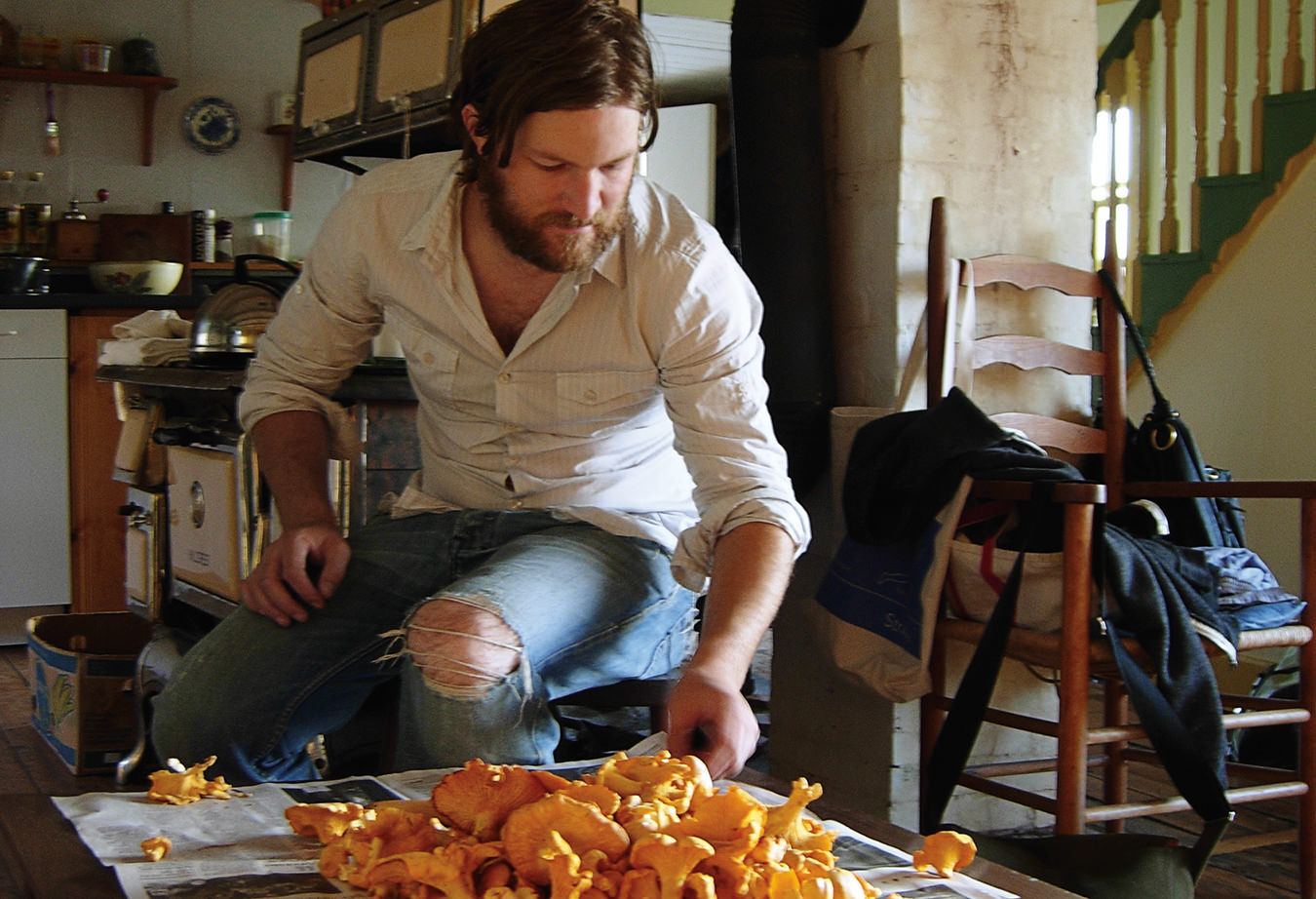-
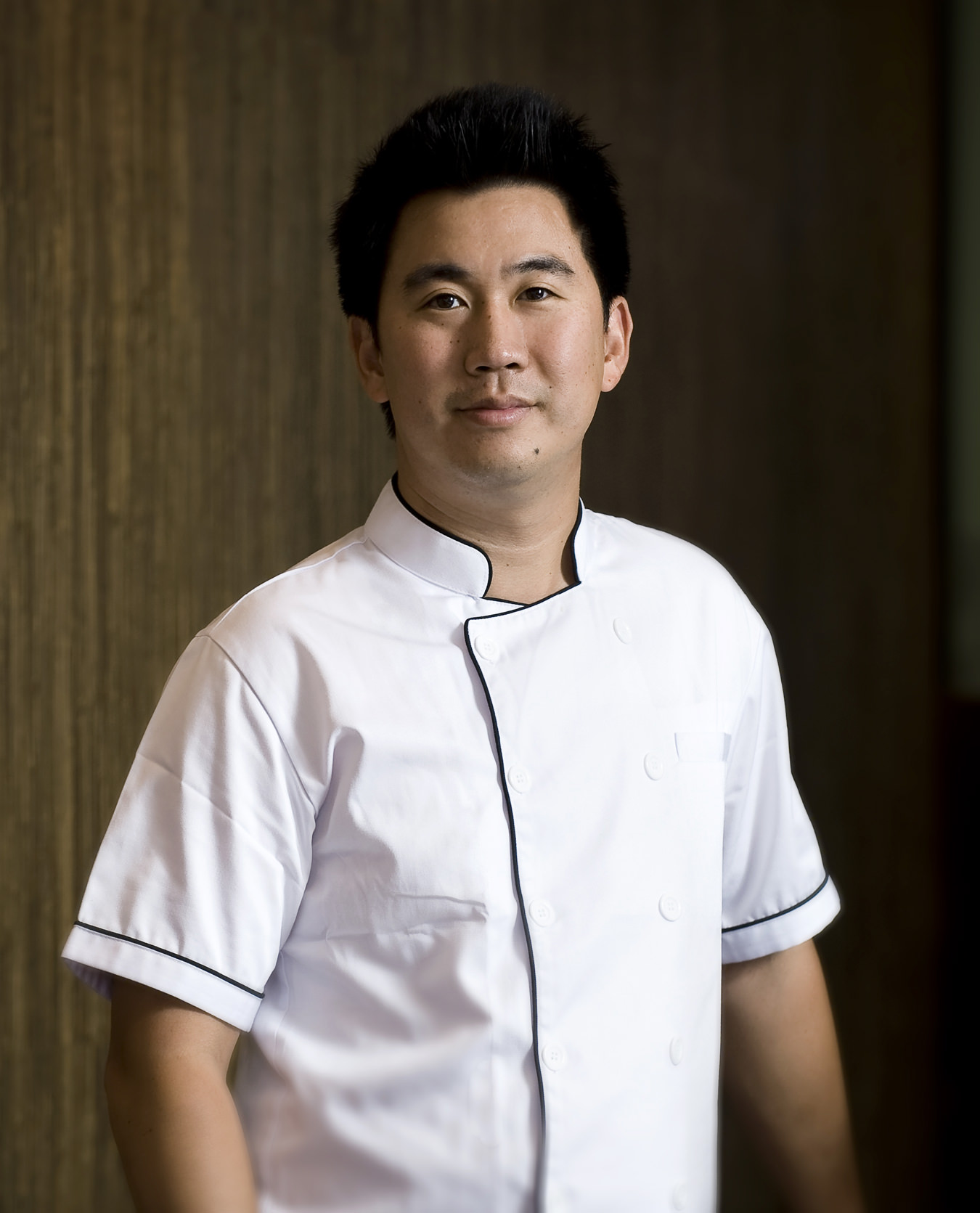
Chef Angus An pushes past traditional definitions of Thai food.
-
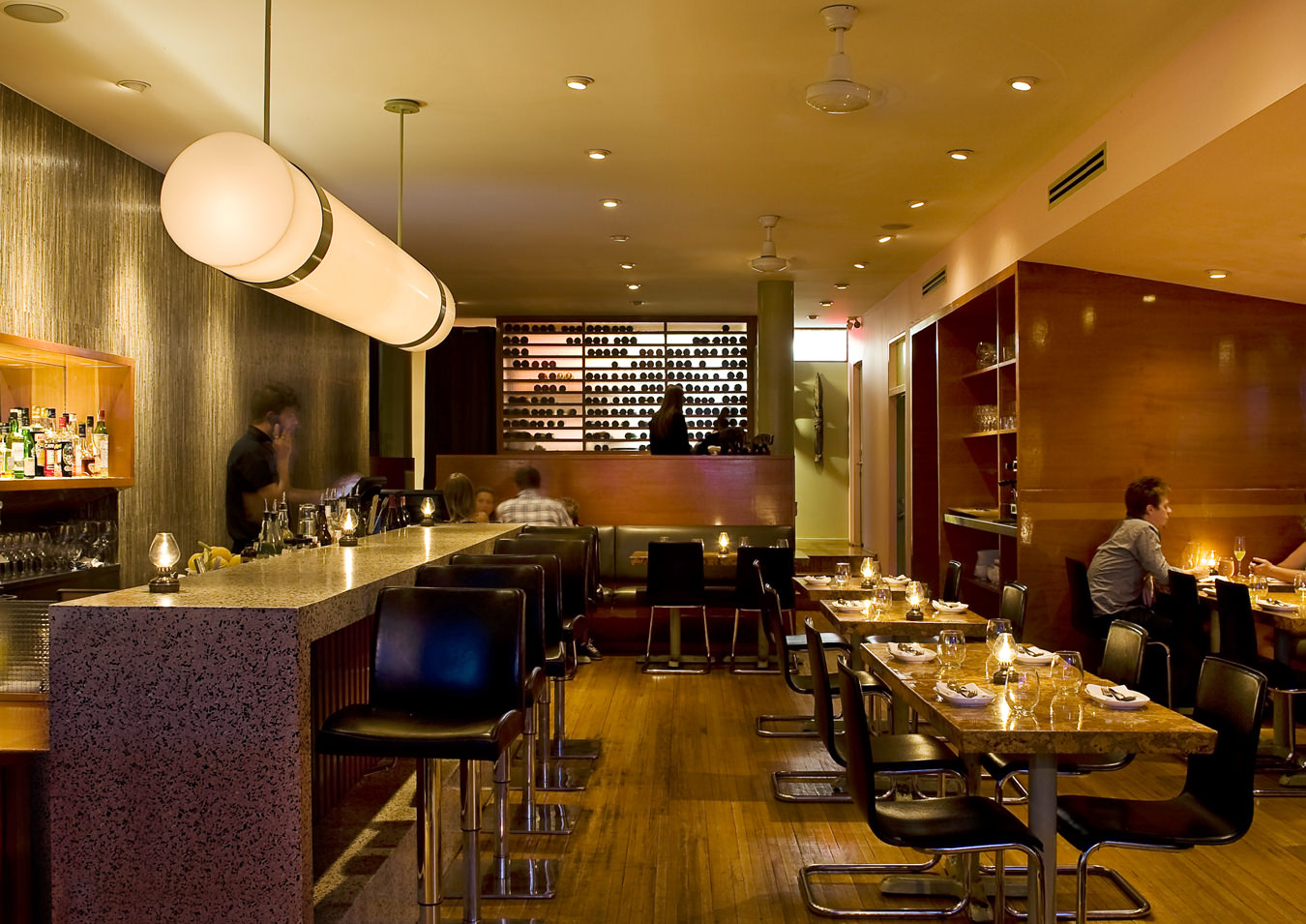
“We wanted to offer our guests a comfortable atmosphere, approachable family-style dishes, and everyday prices that encouraged regulars to come in more than once a week.”
-
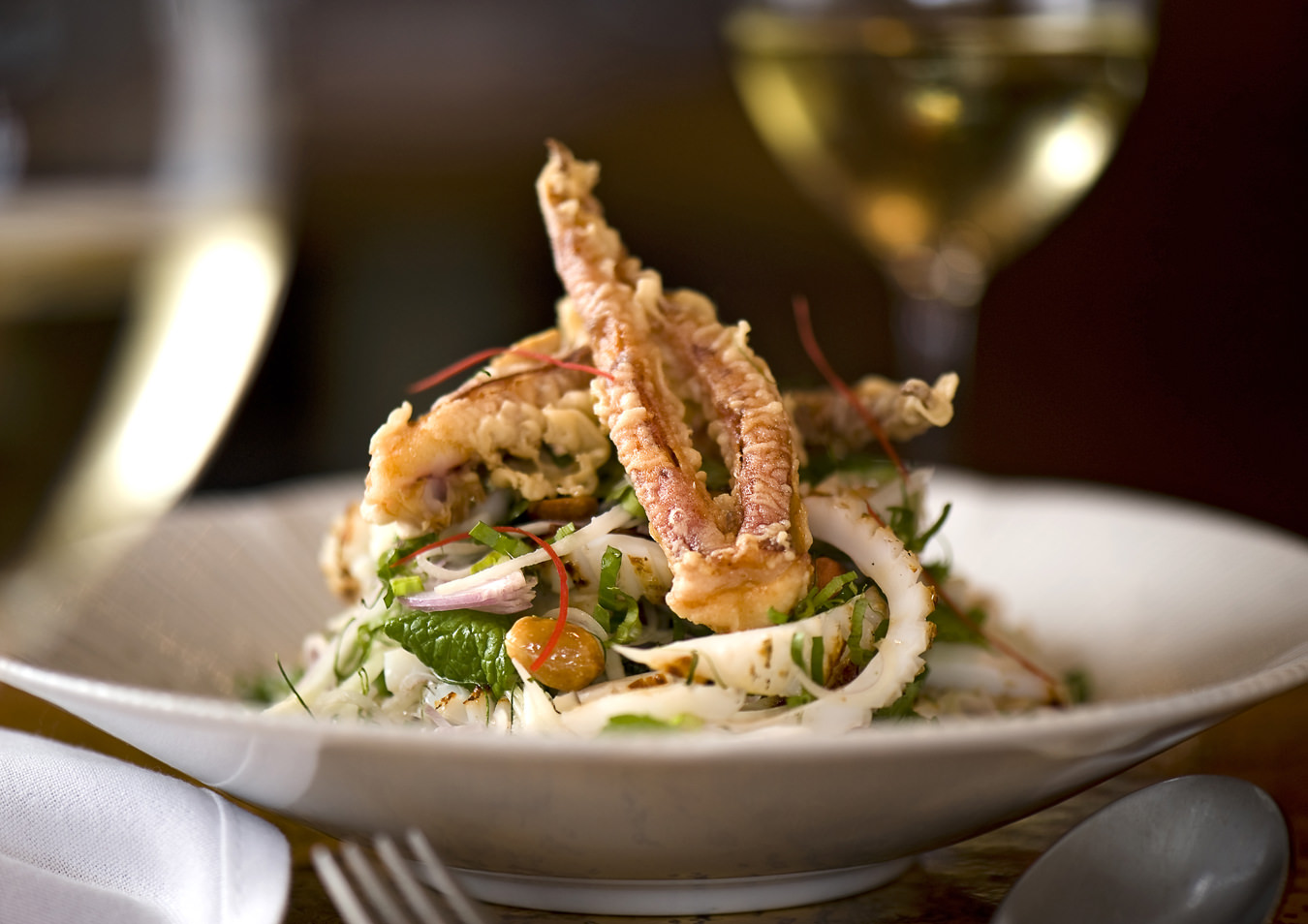
Squid salad with green mango.
-

For An, the black pepper Dungeness crab dish captures the spirit of the restaurant.
-
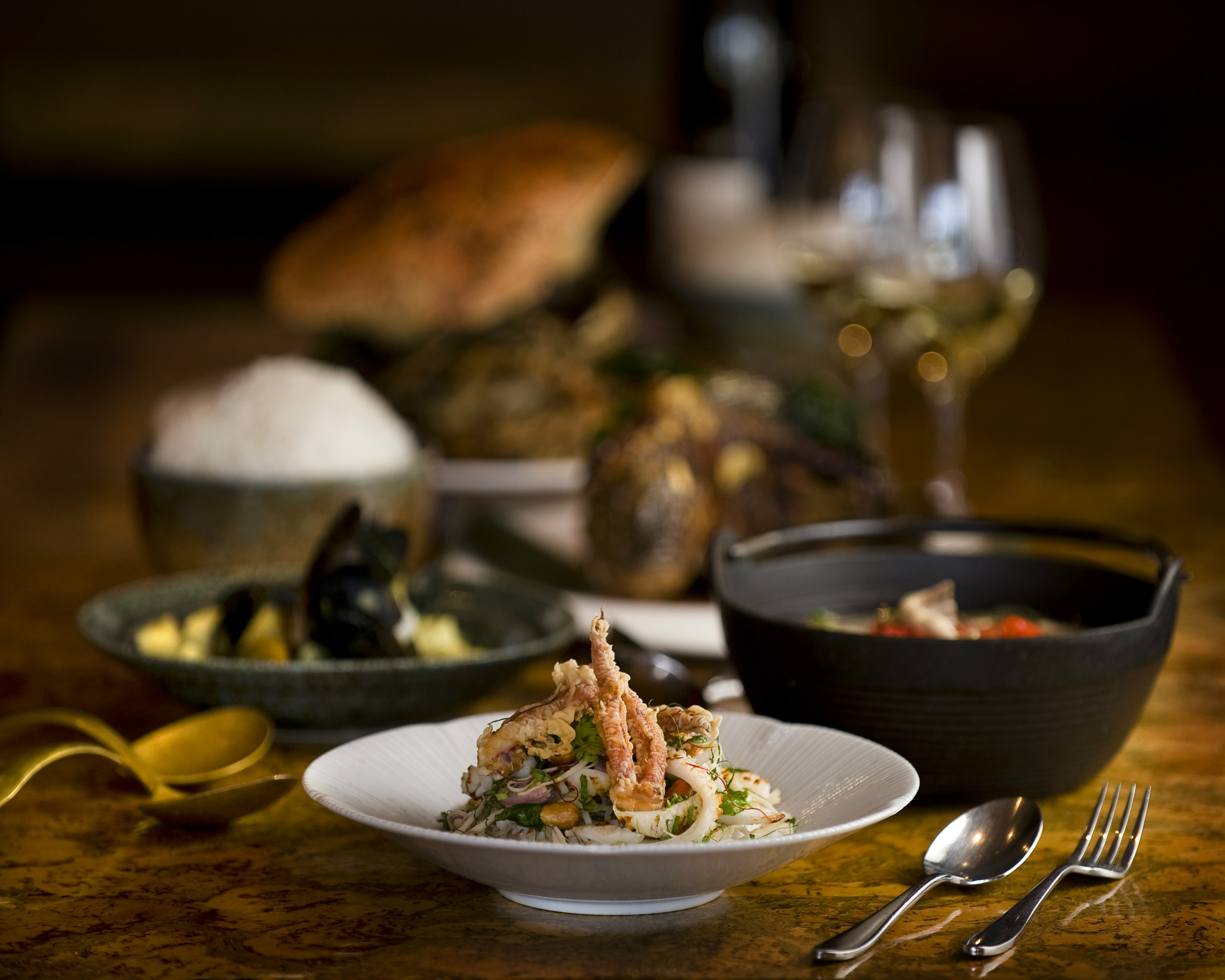
Hot, salty, sour, sweet, and bitter—classic Thai cuisine is built upon the harmonious balance of these five tastes.
-
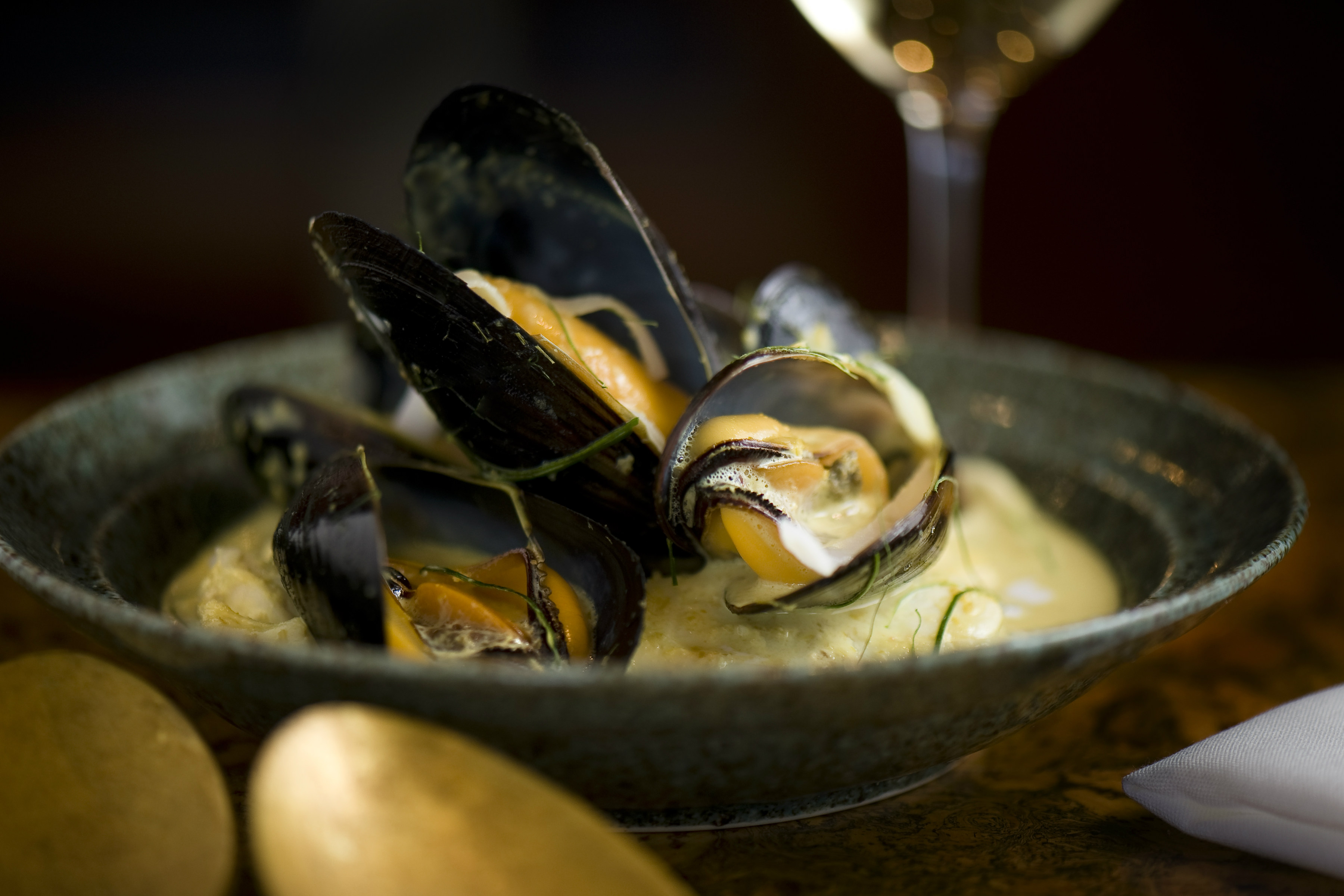
Steamed salt spring mussles with lemongrass and Thai basil.
-

-
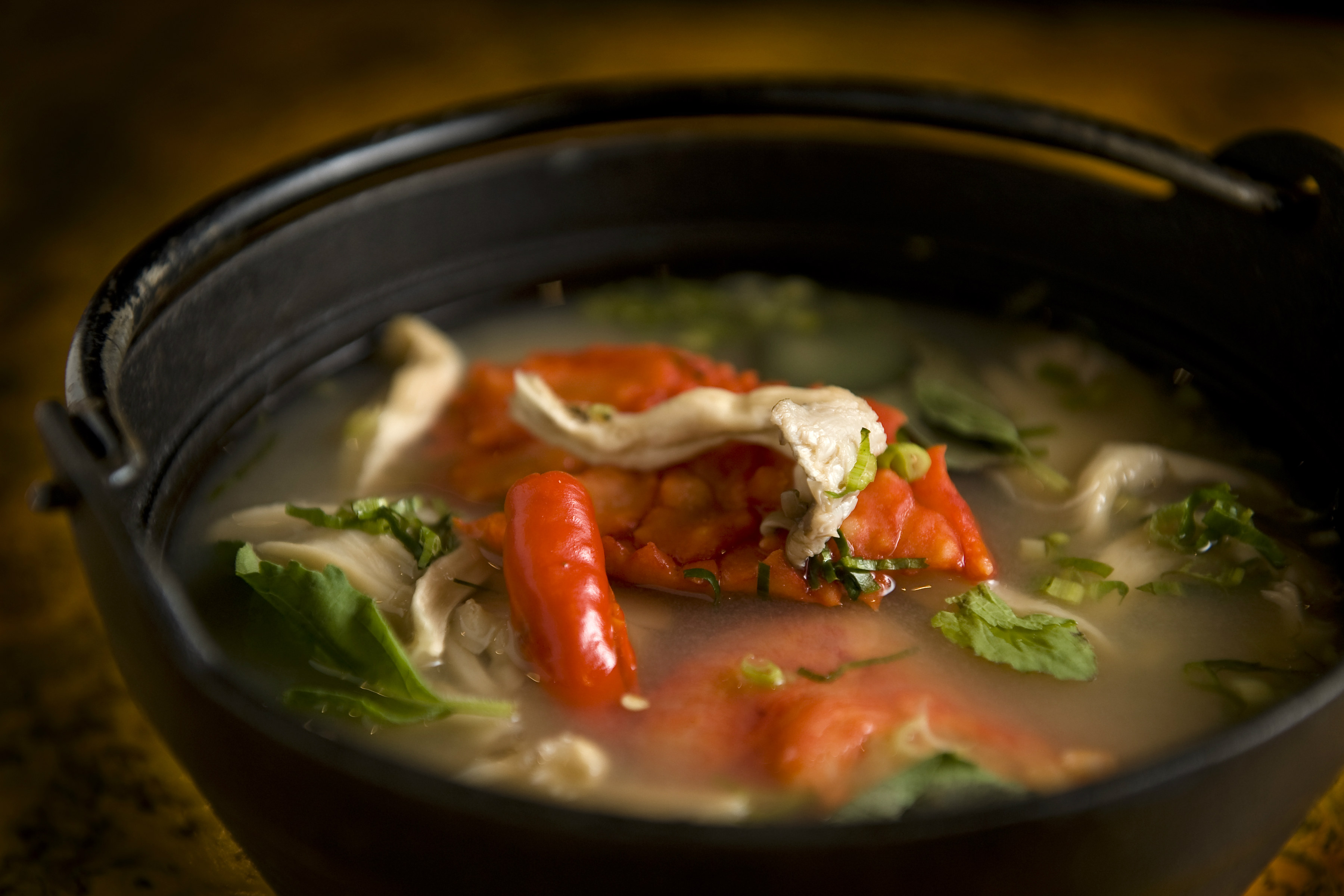
Chef Angus An of Maenam
Beyond authentic.
Hot, salty, sour, sweet, and bitter—classic Thai cuisine is built upon the harmonious balance of these five tastes, created by layering ingredients over a progression of dishes. Chef Angus An deftly walks this flavour tightrope with precision and ease at Maenam, his modern Thai restaurant in Vancouver’s Kitsilano neighbourhood. Grounded by a year and a half spent in the Michelin-starred kitchen of David Thompson’s Nahm, his culinary approach transcends the rigidity of traditional dishes, embracing the bounty of local Canadian ingredients and fluidly interpreting them in a progressive Thai context.
Food has always played a significant role in 36-year-old An’s life. “Growing up in Taiwan, my family was always big into food. We had an Asian kitchen when I was a kid, and my mom taught me how to fry an egg on a wok burner when I was in Grade 1 and I learned how to make fried rice in Grade 2. It was fun even though I could barely see over the top of the wok.”
After An immigrated to Canada with his family at the age of 10, food became a marker for defining his cultural identity. “In Maple Ridge, I was the only Asian kid in my class, and it was very difficult to make the adjustment,” he says. Lunchtime was particularly torturous; classmates teased him incessantly about the homemade dumplings his mother lovingly packed for him each day. He would often go hungry, sometimes throwing out his lunch so she couldn’t see that he wasn’t eating it. “I eventually had to ask her for peanut butter sandwiches instead.”
As busboy, delivery driver, and line cook, An worked his way through high school and university in restaurants as his love for food flourished. Even his final fine arts undergraduate project at the University of British Columbia was inspired by a sizable cookbook collection. “I did a philosophical portrait of Vancouver by cooking a five-course Charlie Trotter–style meal and took portrait photos of each dish in a studio setting,” he says. “It was a comparative examination of Vancouver as a multicultural city through the lens of food, incorporating seafood and other West Coast influences along with Chinese and Indian flavours.”
An’s creative oeuvre solidified his desire to pursue cooking instead of art, and he enrolled at New York’s French Culinary Institute (now known as the International Culinary Center) under the tutelage of industry luminaries including Jacques Pépin. From his apprenticeship at Jean-Georges Vongerichten’s JoJo, he began his career in earnest at Montreal’s Toqué! restaurant. Chef/owner Normand Laprise was the consummate Zen master. “Normand gave me a lot of freedom—he let me experiment, and I grew a lot under him. Because of him, I found my independence and my confidence in the kitchen.”
Food has always played a significant role in 36-year-old An’s life.
An’s ambitions took him to the U.K., where he worked in Michelin-starred restaurants like the Fat Duck, Le Manoir aux Quat’Saisons, and the Ledbury. However serendipity was about to smile upon An, leading him to the culinary endeavour that would fully change the course of his career.
An happened to take a job with David Thompson at Nahm, the first Thai restaurant in the world to receive a coveted Michelin star. “At the time, I didn’t perceive Thai food as sophisticated. But I did a day stage at Nahm when I was between jobs, and the flavours blew me away.” Thompson’s dishes were unlike anything he had experienced in his classical French training. “In Thai cooking, you season with flavours, aromas, and textures. David’s amazingly sensitive palate, highly intelligent way of articulating flavour, and incredible ability to achieve that balance all had a huge impact on me.”
Nahm is also where An met Kate Auewattanakorn on their respective first days of work; she eventually became his wife and business partner. The couple moved back to Vancouver in 2006 with a lofty plan. An had been offered the opportunity to travel to California and trial for the French Laundry, but his family strongly encouraged him to stay and put down roots after being away for five years. Driven by youthful ambition and optimism, the partners forged ahead with their fine-dining approach to molecular gastronomy in the vibrant Kitsilano neighbourhood. A restaurant, Gastropod, was born.
The young chef swung for the fences, garnering critical acclaim along with Vancouver Magazine’s Best New Fine Dining Award in 2007. He impressed local diners with groundbreaking signature dishes—oysters served with Sauternes jelly, horseradish snow, and a piquant shallot reduction were unforgettable—and his modern West Coast fare garnered him a prestigious invitation to cook at James Beard House in New York. Yet within two years of opening, Gastropod fell victim to the global financial crisis.
An and his wife did a swift about-face to stem the mounting losses, shuttering Gastropod and reopening it within three short weeks as Maenam, the concept they had envisioned as their second restaurant. “Vancouver was missing a solid Thai restaurant on the same level that [Vikram] Vij established with Indian food,” An recalls. “We wanted to offer our guests a comfortable atmosphere, approachable family-style dishes, and everyday prices that encouraged regulars to come in more than once a week.”
An’s favourite dishes blend West Coast ingredients with traditional Thai preparations, producing tastes that resonate with Vancouverites while remaining contextually true to Thai flavour profiles.
It wasn’t all sunshine and roses in the early years. Despite an enthusiastic reception from Vancouver diners, An admits that “Maenam really struggled until about 2011. We were carrying over a lot of debt from Gastropod, and I was still upset about its failure.” In 2012, however, a year-long consulting stint at New York’s celebrated Thai restaurant Kittichai offered An a fresh perspective that pushed him to rediscover his creativity and elevate Maenam’s flavours to new heights.
Buoyed by renewed enthusiasm, he was honoured to cook at James Beard House a second time in April 2013, showcasing his “complex and nuanced take on Thai cuisine.” The experience was an incredible affirmation of An’s culinary metamorphosis, enabling him to shake off the spectre of Gastropod’s demise. Moving beyond traditional definitions of Thai food gave him greater creative latitude for culinary exploration.
“What really is authentic, anyway?” ponders An. “Taking a dish that was cooked 100 years ago, but making it different with better ingredients, just makes it more modern, not less authentic.” He references the tendency to order meat well done in Thailand (and all across Asia, for that matter), observing, “Just because we cook a piece of beef medium rare means it’s better beef that’s free from parasites, not less authentic. Making a dish ‘traditionally’ isn’t always right. Sometimes food was prepared in a particular way or with particular ingredients simply because that was the only available option at the time.”
An’s favourite dishes blend West Coast ingredients with traditional Thai preparations, producing tastes that resonate with Vancouverites while remaining contextually true to Thai flavour profiles. “Matsutake mushrooms are a beautiful foraged product native to British Columbia. We add them to a soup of clams with Thai holy basil—the flavours marry together so perfectly. That, for me, is the true identity of Maenam.” He singles out black pepper Dungeness crab (available by ordering a day in advance) as a dish that captures the spirit of the restaurant. “It’s fun to eat—I want people to get their hands dirty and share their food and really enjoy their meal.”
Capping an eight-year streak as the city’s best Thai restaurant, Maenam took top honours at the 2016 Vancouver Magazine Restaurant Awards. It was the first Asian restaurant in the awards’ 27-year history to win Restaurant of the Year.
An’s long-range plans: to continue his current path of growth and exploration. Drawing on hard-won lessons from the past, his focus has shifted to establishing smaller, self-sustaining restaurants that don’t require his constant presence to succeed. “In light of Vancouver’s challenging real estate market, I’m fascinated by the idea of opening a restaurant in 500 square feet versus 5,000.” His Longtail Kitchen, offering Thai street food in New Westminster’s River Market, opened its doors in 2013. Fat Mao Noodles, a pan-Asian noodle joint in Chinatown, dished up its first bowl of soupy goodness in August 2015. And Freebird Chicken Shack, a no-frills River Market stall slinging Hainanese- and Thai-spiced rotisserie birds, packed its first takeout meal in December 2015.
Stepping back from the daily workings of his three new establishments frees up An’s time to be a devoted soccer dad to his son, Aidan, and enables him to bring his creative energies back full circle. “The success of each new restaurant gives me the confidence to be more bold with Maenam,” he says. “Nearly eight years in, much of the guesswork is gone. Each time I’m in the kitchen, it isn’t out of a sense of obligation. I feel inspired because I’m not held back by expectations of authenticity.”
Maenam, 1938 W 4th Ave, Vancouver, BC V6J 1M5, (604) 730-5579.
Photos by Hamid Attie.

